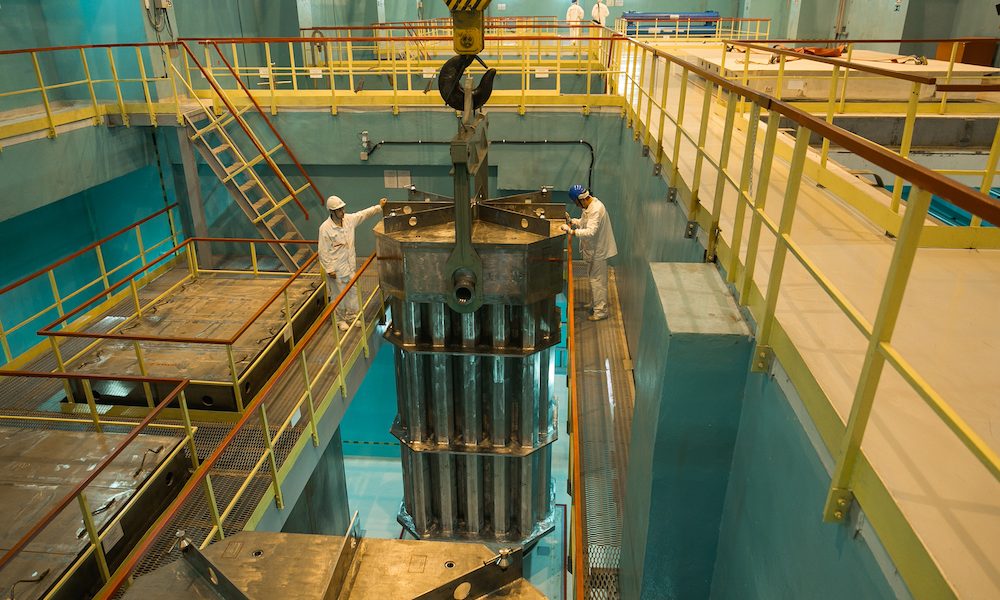On December 11th of last year Uzbekistan became an observer in the Eurasian Economic Union (EAEU), the latest and most important step to date on the path toward full membership of Vladimir Putin’s rival to the EU, through which the Russian president hopes to entice former Soviet republics back into Moscow’s orbit.
Tashkent plans to submit to half of the EAEU’s requirements and technical standards for products exported to the union market, and hopes to achieve full membership by 2023, if not earlier.
In a 2019 speech to the Oliy Majlis, the parliament of Uzbekistan, President Shavkat Mirziyoyev revealed his own concerns when he said “If producing quality, world-class, export-oriented products is one problem, finding markets for them are ten problems. Russia and the Eurasian Economic Union are our main partners, whether we like it or not.”
In its energy sector the country is also subject to Moscow’s gravitational pull, and has recently embarked on a highly controversial nuclear energy programme with Russia’s state controlled ROSATOM. To many, there is a clear connection between the two matters.
“First, there is a clear understanding that whilst from a formal point of view the EAEU is an economic organisation, the Kremlin’s true motivation to draw Uzbekistan into this structure is clearly of a political nature. This decision, if it is final, has two aspects: on the surface there are economic considerations, but underlying it is a political project. This is a step towards drawing Uzbekistan into the orbit of the geopolitical influence of Moscow,” wrote Alisher Ilkhamov, a senior researcher at the University of London and a prominent campaigner against Uzbekistan’s nuclear programme.
Plans are for a first plant, powered by two VVER-1200 reactors, and scheduled for commissioning in 2028 and 2030, at a site near Lake Tuzkan, in the Farishsky district.
A conference at Brussels Press Club on Friday heard of alarming incidents concerning both the Russian contractor involved and the VVER-1200 which is currently installed at the Astravets plant in Belarus, where there has been evidence, and which is intended for Turkey’s Akkuyu plant which is still under construction.
Uzbekistan is not rich in fossil fuel resources, and its need for more generation is widely acknowledged.
However, speaking in the context of the economic and environmental costs of nuclear energy, leading German Green MEP Jutta Paulus told the Brussels conference “we should take care that we use our money wisely, that we use it in a way that is sustainable, where we can really produce a lot of clean energy at scale, which would be solar and wind, and which can be deployed much quicker than nuclear power.”
Concerns have been expressed over the lack of credible public consultation in Uzbekistan over the nuclear programme, and the lack of public awareness of the project. Jo’rabek Mirzamahmudov, director of the Uzatom state agency, himself admitted that before the public were asked their opinions most “had not been aware of the plans to build the plant.”
In fact, as Alisher Ilkhamov has confirmed, in 2014 a representative of Uzbekenergo, the state energy company, stated that “in the future, the company does not envisage the construction of a nuclear power plant within the framework of the Industrial Development Program of the Republic of Uzbekistan and annual investment programs.”
He has also confirmed Mme. Paulus’ concerns over the economic costs involved in Uzbekistan’s nuclear programme, should it go ahead: “it can be concluded that the Uzbekistan NPP will be too expensive. In turn, expensive energy, if it is intended for industrial use, will inevitably affect the cost of production in the country and, accordingly, will lead to a decrease in its competitiveness in foreign markets.”
Construction has yet to begin on the plant: if public opinion were to be truly assessed it is highly likely that as is the case in Belarus and Turkey it would be opposed.
As for Uzbekistan’s somewhat reluctant, to judge by the words of President Mirziyoyev, return to Moscow’s orbit, Professor Michael McFaul, former U.S. Ambassador to Russia, has suggested that now might be a good moment for Joe Biden to reach out to Tashkent.




